
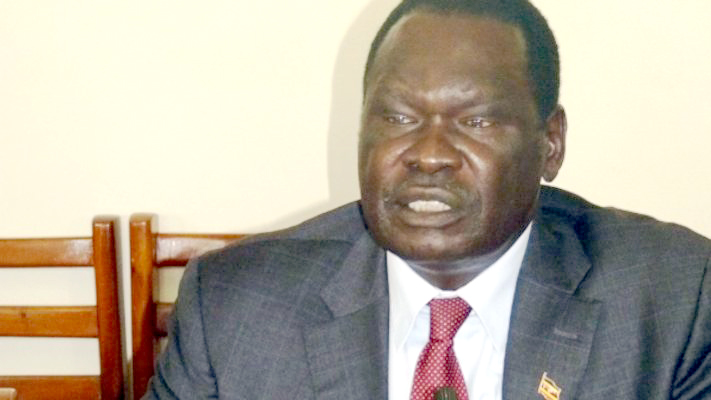
Dr. Hillary Oneck minister of Disaster Preparedness and Refugees
Donors seem to have lost trust in the Ugandan government, apart from China and India, going by the recent standoff between the two parties over refugee money.
The way through which the international community is fulfilling the pledges it made to Uganda during the 2017 Refugee Solidarity Summit has resulted in contradictions between the government and the United Nations High Commissioner for Refugees (UNHCR) on who is receiving the money and how it is being spent.
Between June 22 and 23, 2017, President Museveni, with the United Nations (UN) Secretary General Antonio Guterres, held the solidarity summit under the theme: “Shoulder to Shoulder” in Kampala with the aim of raising at least USD 2bn (about UGX 7tn), to support the high number of refugees entering into Uganda especially from South Sudan, the Democratic Republic of Congo (DRC), Rwanda and Burundi.
According to Eng. Hillary Onek, the Minister of Relief and Disaster Preparedness and Refugees, a total of USD 530m (over UGX2tn) was pledged by donors and other stake holders.
Reports indicate that on the first day of the summit a total of USD 358m (UGX1.3tn) in pledges was recorded from four African countries, five Asian countries, 12 European countries, two regional groupings and the private sector.
From Africa Equatorial Guinea pledged USD 100,000, Gabon USD 250,000, Kenya USD 200,000 and Somalia pledged USD100,000.
Asian countries were led by Japan who pledged USD 10m, followed by the Republic of Korea with USD 6.8m, USD 1.1m from India, USD 5m from the United Arab Emirates and USD 500, 000 from China.
Pledges recorded for other countries were, Germany USD 56m, USD 50m from the United Kingdom, US5m from Australia, Italy pledged USD 5.6m, Canada USD 11.5m, and Sweden pledged USD 27.1m. Norway pledged US4m, Austria USD 2.2m, Netherlands USD 6.2m, Denmark USD 62m, Ireland USD 2.6m and Finland USD 2.4m.
From regional groupings, the European Union (EU) pledged USD 96.3m and the African Union (AU) pledged USD 100,000. The Private sector was led by the MTN Group Uganda with a pledge US1m.
An excited President Museveni lauded the international community for standing in solidarity with Uganda.
“On the first day USD 358m!! This is excellent because the purpose is to express solidarity with us not only to manage refugees in Uganda but also the communities that are hosting them,” he said.
Over two years down the road, the government is not receiving the money. This has angered several government officials who, on several occasions, have slammed the international community for being “inconsistent”.
While launching the new Refugee Appeals Board at the office of the Prime Minister in Kampala recently, minister Onek attacked the donor community for not fulfilling its pledges.
“We want the international community to account for the money we raised in the Solidarity Summit, because whatever was given to us is now ours,” he said.
“We have been waiting patiently for two years and now they are telling us that ‘we have given the money to NGOs in your country.’ Which NGOs? And what have they done with the money?” Onek asked.
Onek asked the international community to be accountable and transparent before accusing anyone of corruption.
“They put us under pressure because of some missing posho, beans and other things. Ok! Ok we admit may be some flour and beans may have got lost now what of the millions which we have waited for, for over two years? Never throw stones if you stay in a glass house,” he said.
It should be noted that on November 27, 2018, the UN’s Office of Internal Oversight Services released an internal audit report which exposed major fraud, corruption and mismanagement of refugee funds in Uganda. The report indicated that, between July 2016 and December 2017, tens of millions of dollars were wasted through “inappropriate arrangements” between the UNHCR and the Office of the Prime Minister. Donors thereafter threatened to withdraw funding.
Onek’s call was in addition to an earlier appeal by the Speaker of Parliament Rebecca Kadaga to the international community, asking them to respect their promise and fulfil their pledges.
In her address to the 10th Conference of Speakers of African Parliaments and Senates at the Pan-African Parliament in South Africa, Kadaga said Uganda had received only USD 540,000 out of the total pledges that were made.
Response from UNHCR
In what appeared to be a direct response to the government’s plea, the UNHCR said it had already received at least USD 330m from the total pledges.
While addressing journalists at the UNHCR offices in Kampala recently, Joel Boutroue, the UNHCR Country Representative, said that the money (USD 330m) had been channelled into refugee related activities through Non-Governmental Organizations (NGOs).
He added that the Ugandan government had directly received USD 1.5m from China and India.
Julius Mucunguzi, the spokesperson of the Office of the Prime Minister, confirmed to The Sunrise that the government had indeed received the 1.5m.
The EU, which pledged the highest amount, told The Sunrise that it had fulfilled its pledges through humanitarian and development funding.
Through an email, Ann Merrifield, the Deputy Head of Delegation said that since 2017, the EU had provided at least EUR 136m (USD 151.36m) in humanitarian assistance to Uganda.
“The EU humanitarian aid is never delivered to or through the government. All the assistance provided by the European Union is always channelled through our humanitarian partners, such as the UN agencies, International and non-governmental organizations with whom we have framework partnership agreements,” she said.
She added: “The EU has committed an additional EUR 65m (USD 72.52m) in development cooperation programmes designed to support Uganda’s refugee response actions, bringing the total amount of EU contribution to more than EUR200m (over USD 220m)”
According to Merrifield, all the EU Member States which made pledges at the Solidarity Summit had fulfilled them by the time of this publication.
“EU’s support has also focused on providing rapid and effective emergency assistance to newly arrived refugees, especially to those from South Sudan and the DRC. This is done through helping humanitarian organizations to provide protection, shelter, food assistance, healthcare, access to safe water and sanitation services, nutrition, disaster preparedness and education assistance to refugees and their host communities.”
She added that the EU was also providing development aid to support the Government of Uganda to eradicate poverty and under nutrition in northern Uganda, particularly in the sub-regions of West Nile, Acholi, Lango, Teso and Karamoja.
Duniya Aslam Khan, the Communication Officer of UNHCR, said that donor governments always decide if they would like to channel their pledges directly to government projects, or through other humanitarian and development partners.
“The solidarity resulted into considerable support that was pledged and delivered. More than USD 550m has since come to different United Nations (UN) agencies, NGOs and some directly to the government,” he said through an email.
In response to Onek’s demand for the international community to reveal the organisations that are receiving the pledges on behalf of the government, Khan said that the USD550m that had been received since 2017 was distributed as below:
The United Nations High Commissioner for Refugees (UNHCR) received USD237.3M, the United Nations Children’s Fund USDS10.4m, World Food Program (WFP) USD134m, United Nations Women: USD1.58m, the International Organization for Migration (IOM) USD2.24m, United Nations Population Funds (UNFPA) USD 13.5m and USD 73m was given to the government through technical support in refugee hosting districts.
As the two parties continue to contradict on how the funding of refugees activities is being met, the refugee number has continued to rise annually due to Uganda’s open door refugee policy.
The United Nation High Commission for Refugees (UNHCR) annual Global Trends report that was released in June 2019 indicates that Uganda hosted over 1.16 million refugees by the end of 2018, compared to 1.35 million refugees in 2017.
The report also indicates that there were nearly 70.8 million people who were displaced worldwide by the end of 2018 out of these 25.9 million were refugees with 20.4 million under UNHCR and 5.5 million, basically Palestinian refugees, under the United Nations Relief and Works Agency (UNRWA


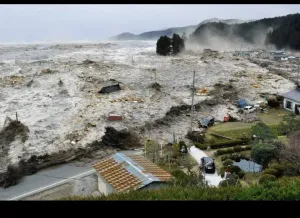

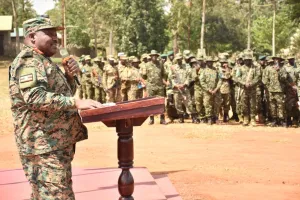
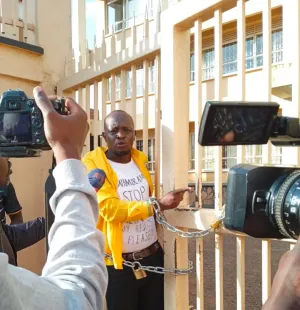





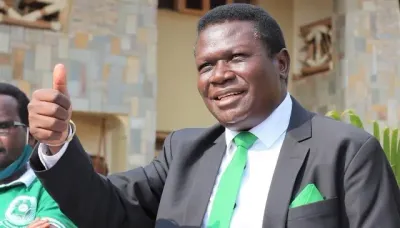
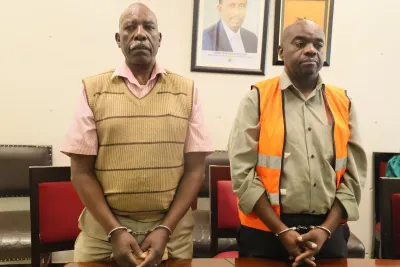
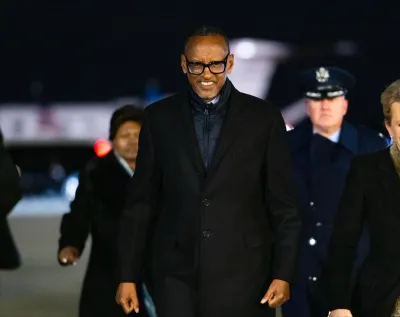
Busein Samilu
Leave a Comment
Your email address will not be published.